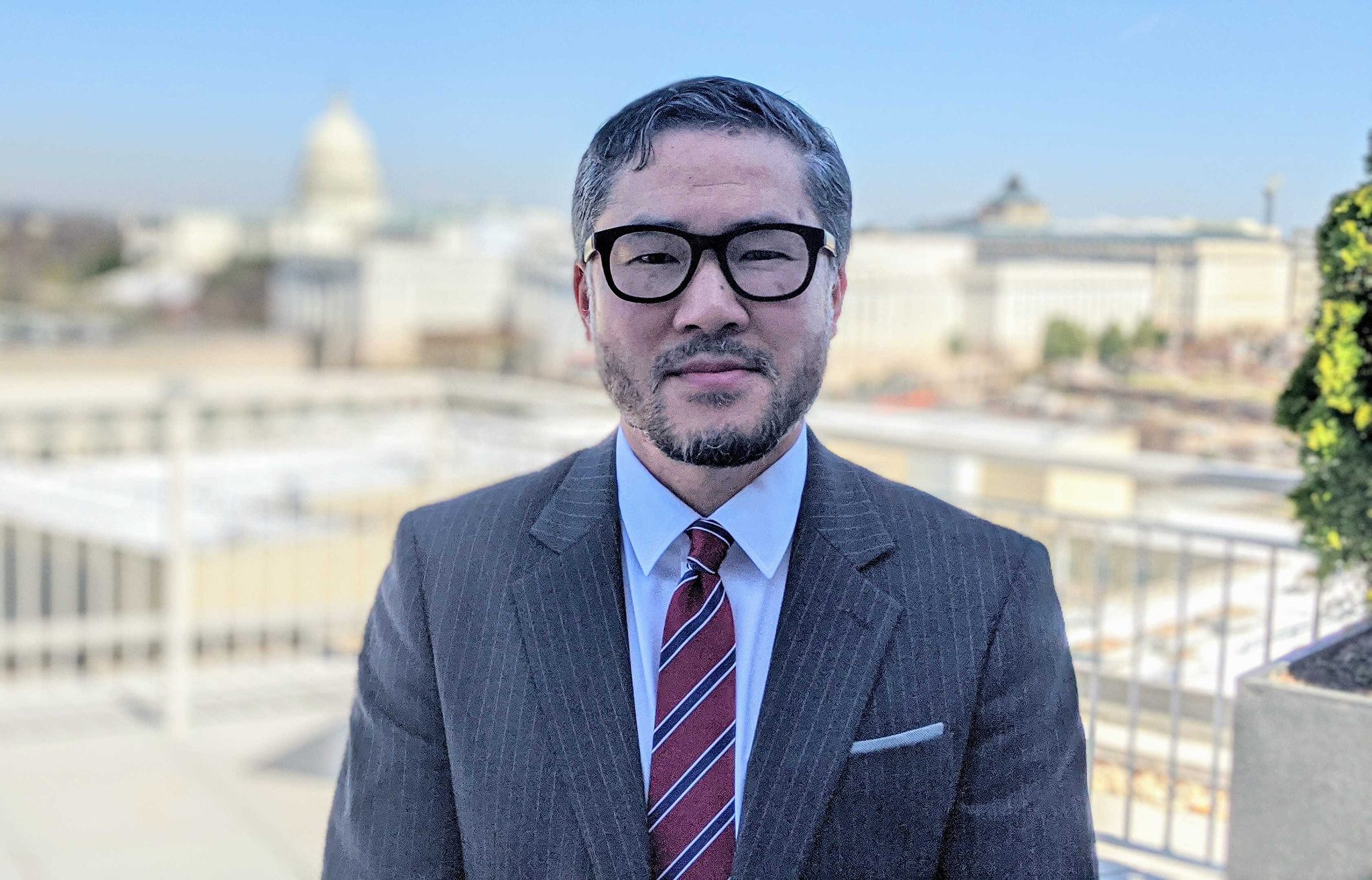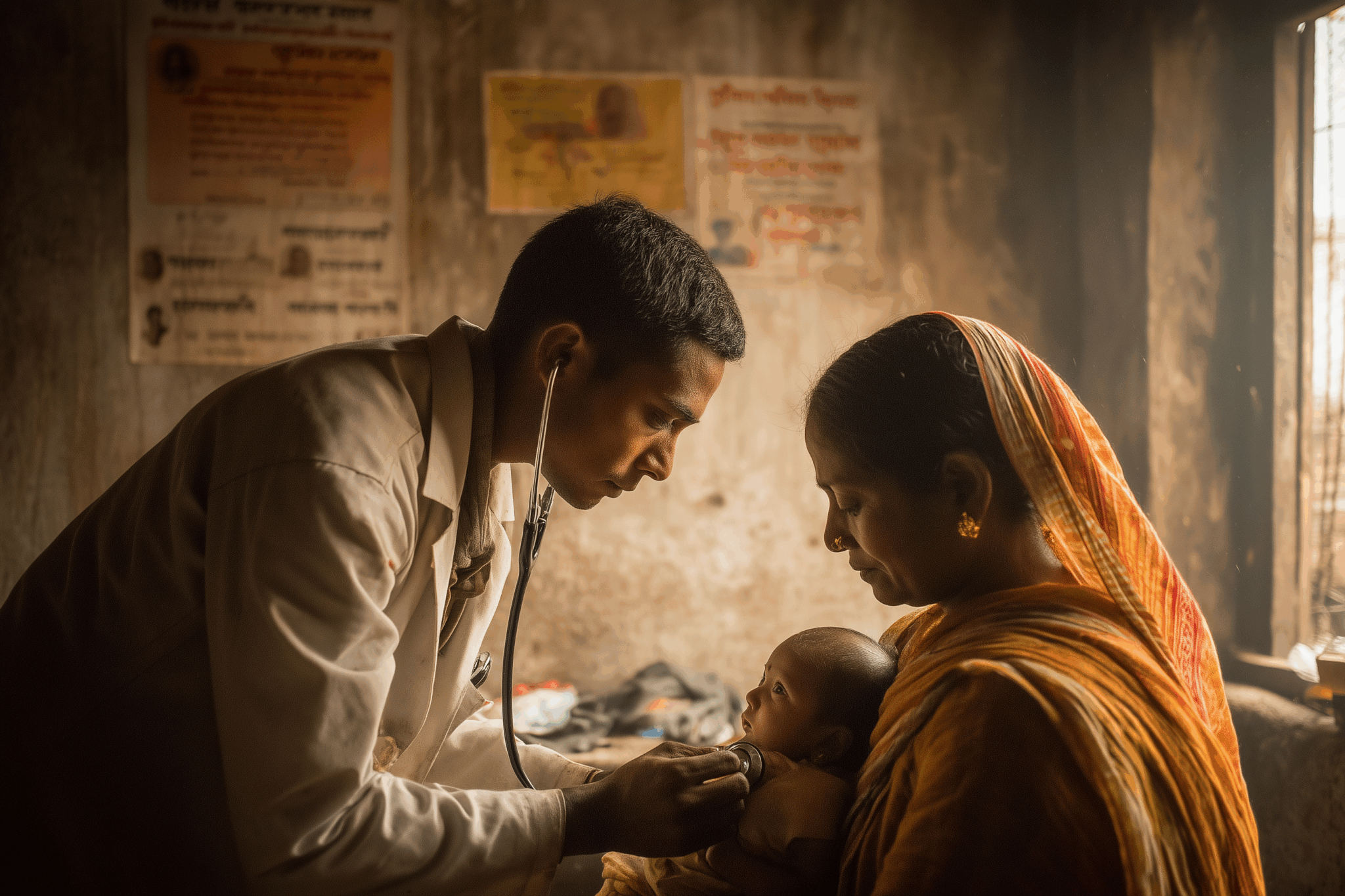In March 2020, Bread for the World’s board of directors elected Rev. Eugene Cho as its next president. Eugene was in Seattle, Washington, where he was pastoring the urban, multi-cultural, multi-generational Quest Church and founded the global poverty-focused non-profit One Day’s Wages. He had just published Thou Shalt Not Be a Jerk, a book that equips readers to remain rooted in Jesus’ teachings and example while engaging in politics and policy, and urges us all to stop vilifying those we disagree with.
The board of directors saw Eugene as the leader who would help Bread for the World bring the world closer to the end hunger by bringing Bread’s mission to the next generation. They knew he had the capability and know-how – by being a clear thinker, compelling speaker, dynamic pastor, and passionate advocate for justice – to build on Bread’s strengths and powerfully connect faith and action for our current members and the wider community of faith-based and anti-hunger advocates.
But the world has dramatically changed in a year. The context in which Bread works and in which Bread members operate is markedly different from the one in which Bread was built and in which Eugene came on board.
Since last year, the COVID-19 pandemic has killed 600,000 Americans and millions of people globally and caused the worst hunger crisis the U.S. and world have seen in decades.
The United States has seen contentious and violent political strife, false assertions about voter fraud in the presidential election, an attempt to subvert democracy in our country, and the storming of the U.S. Capitol Building.
There has been discourse of a new racial reckoning in America even while attacks and state killings of Black Americans have risen and there has been a surge in hate crimes against Asians and Asian Americans.
Eugene took a moment to reflect, here at the one-year mark since he formally took the reins as Bread’s president last July, about his experience.
Reflection
How has my first year as president of Bread for the World gone? I’ll give you a straightforward answer: It’s been one of the most challenging years of my life.
In some ways I am still trying to process all that has transpired. I am at a loss for words sometimes. It has been a dizzying experience.
Becoming the president and CEO of Bread for the World has been an honor and a heavy burden. When I came on board, I wanted to acclimate myself to the work and to the culture of the organization, but needed to adjust to a team who was suddenly and unexpectedly all virtual and who suddenly and unexpectedly had to figure out how to do advocacy, form partnerships, hold events, and all the other methods Bread uses to carry out our mission, all from a distance.
Apart from the work, everyone was struggling personally. The pandemic has been harrowing. At the beginning, all of us were scared. I have parents in their 80s and a child with underlying health issues, so I was trying to be a good son and a good parent.
The social unrest was really intense where I live in Seattle. What transpired on January 6 and all that led up to it with the contentious election cycle, the allegations of fraud, the seeming desire of Americans to not be part of a democracy… there were a few moments when I was not sure if I wanted anything to do with Washington, DC.
When I accepted the calling to this role, I spent a lot of time in discernment with my family. Accepting meant moving across the country to Washington, DC – a foundational change in our lives. They gave me their full support and we looked forward to this new chapter together.
But because of these new contexts, that has changed. The surge of hate and racism was incredibly personal for my parents, for me, for family. We experienced circumstances and interactions that have been shocking. It is difficult when your family says, “Maybe we should leave this country and ‘go back home’ as we have been shouted at to do.”
I know I’m not a unique case. And I do not want to overuse this word because I think it carries a serious definition. But it has been somewhat traumatic.
And yet, I am reminded of the phrase I have probably said 1,000 times, “all things considered…”
We are so fortunate.
I do not say that to diminish the real challenges still before us, or the real pain, and death, and illness that we have seen with our own eyes. In my family, we lost an uncle to COVID. Lines stretched impossibly long from the food bank half a mile from my house. Childhood hunger has quadrupled. Food insecurity will rise all over the world as a result of the global economic crisis caused by COVID, even in places that were food secure before the pandemic.
I recently had a conversation with a Bread member where I said, you know, if the invitation to join Bread as president happened in February or March of 2021 rather than 2020, I do not know if I would accept. But that was not God’s timing. For me, as a person of faith, I know that God wanted me to assume this role before all this transpired.
I am reminded of something Martin Luther King, Jr, said: “Take the first step in faith. You don’t have to see the whole staircase, just take the first step.”
There is something in my human condition, something about my humanness that makes me want to know with absolute clarity what is going to happen next. I want to know the future! But God never shows me all the specifics – just the next step. I have to be faithful. We have to be faithful.
One of the most common questions I am asked as president is, “What is your vision for the future of Bread?” They are asking me to give them the next 20 steps. I do not have them.
I can only say that Bread will take the next steps informed by our values. We will continue to be pastoral; to seek to be prophetic; to work in a bipartisan manner; to be persistent, personal, and practical; to always place at the center the “why” of what we do. God not only invites us, but commands us, to love our neighbors, and to so with integrity and dignity. These values are at the core of every step we take.
And, as crazy as it may sound, we can still end hunger in our lifetimes. It is possible in a technical sense and it is possible to garner the necessary political will. With Christ, all things are possible. That is the crux of our identity as an organization.
I still think about a conversation I had months ago with a Bread for the World member in Indiana. She leads letter writing at her retirement home. She does not do email, but she gets information about Bread’s advocacy issues through our hard copy newsletter and phone connection with Bread staff. Here she is, every month, pandemic or no, leading her community to write letters to their members of Congress. Her passion and commitment to partnering with Bread to help end hunger comes from love. She loves God and seeks to love her neighbors who are in vulnerable circumstances. It is humbling.
Bread is strong because we are diverse in age, in race and ethnicity, in theological and political background. And even as we acknowledge this strength, we will need to continue this commitment to grow more diverse. But there are some real challenges at Bread. In the pandemic, two of the most challenging aspects have been about the nature of forming relationship.
The first is the challenge of connecting with members of Congress. Direct and personal relationships help dissipate some of the tensions inherent in the polarized world we move in. When you have a relationship with someone, you are able to see more of their context, to see how their politics and policy views fit into their personal experience. That understanding leads to empathy, which allows us to find some common ground and a place to move forward together.
The second challenge is of building a connection with Bread members. While I have so appreciated the technology that has allowed me to connect with the Bread community on conference calls, video calls, and webinars, there is nothing that can replace the opportunity to break bread, pray, worship, and put our faith into action in-person together. I am looking forward to the opportunity in the future to connect with Bread members, activists, local pastors, and even board members and staff, not all of whom I have yet been able to meet in person.
While Bread has a ways to go in fulfilling our mission, I have seen, even via remote access, the passion of Bread staff, board, and membership. Everything we do together will bear fruit because of it.
If I can end with another quote, I want to share with you something from Robert Muller: “Use every letter you write, every conversation you have, every meeting you attend, to express your fundamental beliefs and dreams. Affirm to others the vision of the world you want. You are a free, immensely powerful source of life and goodness. Affirm it. Spread it. Radiate it.”
We need a credible, bold, truthful, and Christian witness. It has been an honor and a pleasure to come alongside Bread members living out this witness in many ways and places over the last year, and I am hopeful for the work we will do in the coming year – together, and for the whole Gospel.



